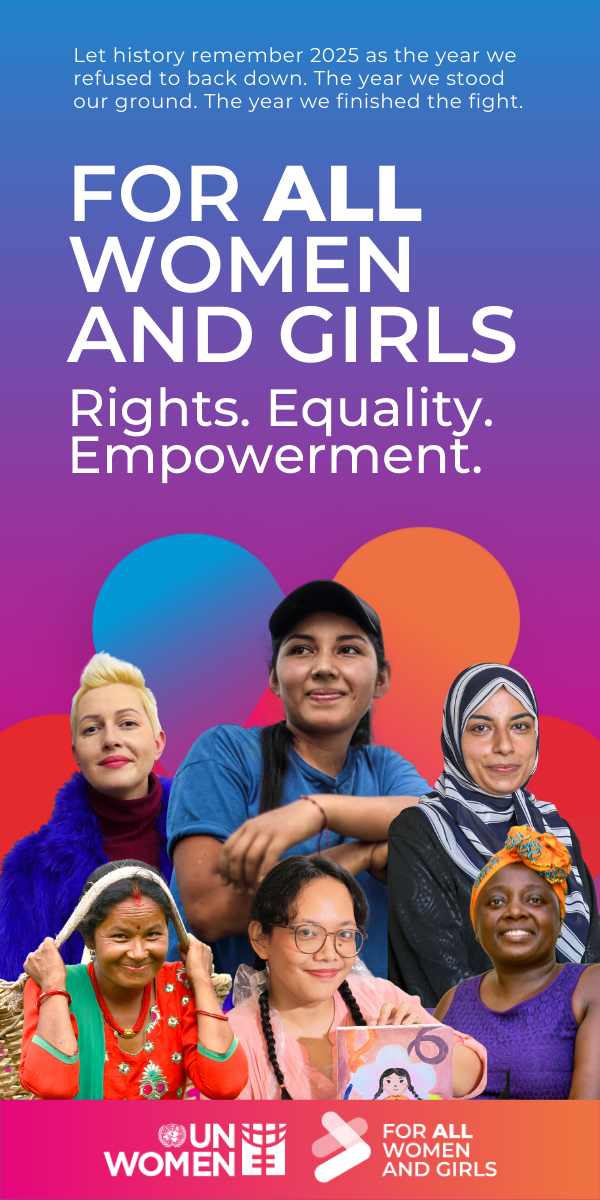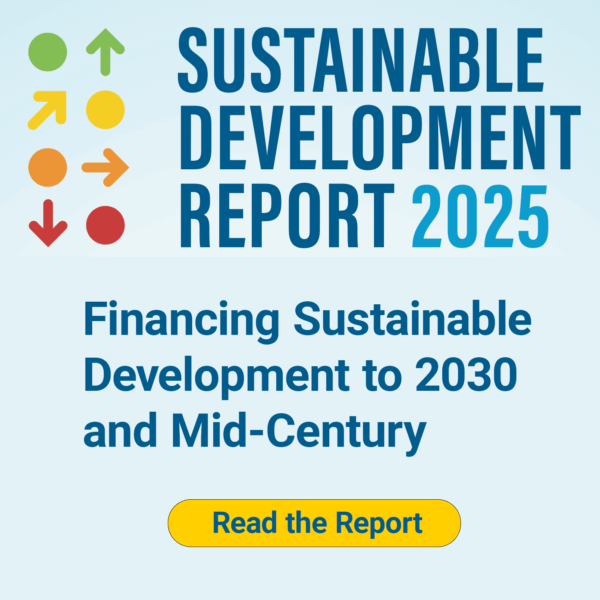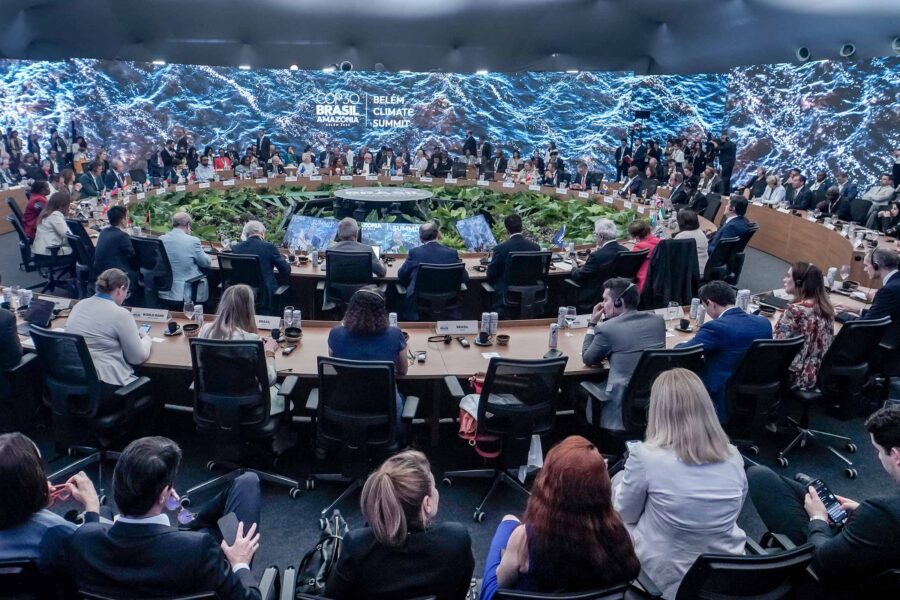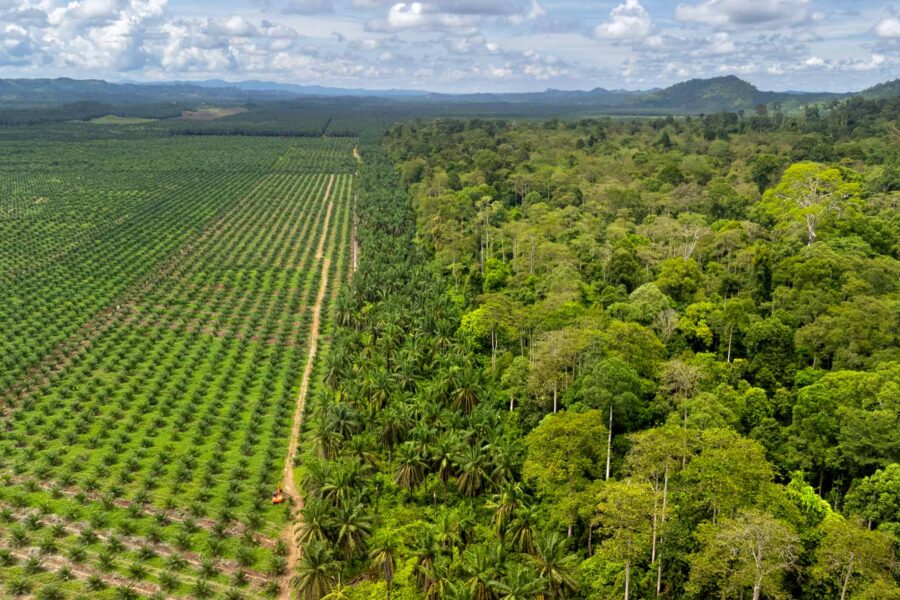Trade at a turning point: why COP30’s new climate-trade forum could reshape global action
With trade measures rising and global warming accelerating, COP30 in Belém, Brazil, introduced a new forum to rebuild trust between climate and trade communities. Its promise – and its challenges – will shape the next phase of global climate cooperation
Climate — Global

As the world races against the clock to limit global warming to 1.5°C, trade policies could either slow down or speed up climate action. At COP30, in parallel to the UN process, Brazil launched the Integrated Forum on Climate Change and Trade (IFCCT), a new platform designed to focus on sustainable development and break down the ineffective, siloed approach that has long hampered progress.
Why does this new forum matter? Because the future of climate progress may hinge on how well we connect the dots between trade and sustainability, including how to minimize the climate impacts of trade.
In this article, we unpack the promise of the IFCCT, the challenges it faces and five key recommendations to make it a success – offering a hopeful path forward in the global climate–trade conversation.
The need for deeper international cooperation
While using trade as a tool for climate mitigation is welcome, we urgently need deeper international, trade-related cooperation – including for adaptation efforts. Yes, we must explore all possible mitigation mechanisms. But we also need new approaches, given that global emissions cuts are insufficient to meet the 1.5°C target.
Trade-related instruments – such as border carbon adjustments (BCAs – tariffs or levies reflecting the carbon content of imported goods) and deforestation-free regulations – are well-intentioned. While theoretically correct by internalizingenvironmental impacts, they can also reshape economic structures and have significant development consequences. Legitimate concerns exist about the risk of economic exclusion for developing countries, especially least developed countries, without recognition of historical responsibility or differences in capacity.
Existing institutions have struggled to bridge these gaps. Both the United Nations Framework Convention on Climate Change (UNFCCC) and the World Trade Organization (WTO) have tried to address trade and climate, but their progress remains fragmented and insufficient. For example, the WTO’s discussions are scattered across different committees. Under the UNFCCC, unilateral trade measures were discussed at COP29 under the response measures workplan and framed as “cross-border impacts”; at Bonn, under the just transition work programme; and at COP30, trade was included in the Global Mutirāo decision, which launches UN structured dialogues, running in parallel to the IFCCT.
What makes the IFCCT different?
Enter a promising alternative for cooperation: the Call of Belém for the Climate. This initiative invites countries to avoid unilateral trade measures (UTMs) based solely on environmental goals and instead join the IFCCT “to build concrete solutions that combine climate action and sustainable development.”
Launched by Brazil on November 15, 2025, the IFCCT is an open venue for policy dialogue that will operate independently of both the WTO and UNFCCC. It offers a much-needed space to address the climate–trade nexus holistically, exploring links between trade and energy transitions, carbon accounting (the methods used to measure emissions across value chains), technology transfer, and the “climate value” of goods and services. Regarding UTMs, the IFCCT could build on existing initiatives and recent developments.
Five key recommendations for IFCCT’s success
To help the IFCCT realize its potential, we propose five key recommendations:
1. Ensure long-term sustainability
Trade-related frictions will not disappear overnight. While the IFCCT’s initial term is three years, it must build a sustainable framework that extends beyond this to provide a lasting venue for cooperative dialogue.
2. Adopt an inclusive and cooperative approach
Carrots work better than sticks. Both the countries imposing UTMs and those affected by them must have their voices heard. The forum should focus on helping vulnerable nations transition through finance, technology co-development,and capacity-building. Enforcement mechanisms are understandable but should come only after cooperative efforts to facilitate compliance capacity.
3. Prioritize interoperability in practical solutions
Each country should retain flexibility to pursue its own mitigation path, with their nationally determined contributionsaligned with the Paris Agreement. However, this should operate within a framework that recognizes equivalent efforts. Interoperability is key to building trust, reducing trade tensions, and recognizing diverse approaches. For example, BCA crediting mechanisms should recognize different methodologies beyond direct carbon pricing.
4. Follow the advice of the International Court of Justice (ICJ)
Climate and trade law must be viewed as complementary, not conflicting. The ICJ recently reaffirmed, in its advisory opinion on the obligations on states in respect of climate change, that “when several rules bear on a single issue, they should, to the extent possible, be interpreted so as to give rise to a single set of compatible obligations.” The hybrid nature of UTMs means they fall under both climate and trade rules, which should be harmonized. Furthermore, cooperation is not optional but a legal obligation for states.
5. Build creatively on existing initiatives
International experts have developed guidance on the principles of international law relevant to climate-trade interactions, and the Villars framework works on aligning trade systems with climate goals. Creative, innovative thinking is essential, including how to address core issues like internalizing the environmental value in a development-friendly way.
Moving forward: dialogue over division
Human welfare must be the ultimate goal, with climate action at the heart of this effort – and trade as a tool to support both. We cannot lose sight of these fundamental objectives.
Climate action aims to prevent global warming and its devastating impact on human development. Trade-related climate policies, therefore, must not undermine human welfare. Instead, trade should be leveraged as a tool to support decarbonization by improving access to green goods, scaling clean energy solutions, and repurposing harmful subsidies. Trade can also incentivize greener production through technical requirements.
These elements are deeply interconnected: climate policies influence production and consumption patterns, while trade policies shape access to the technologies needed for a sustainable future.
What about the EU Carbon Border Adjustment Mechanism (CBAM)?
CBAM is commonly referred to as a UTM. In response to criticism, the EU simplified CBAM by exempting small annual imports (“de minimis”) and easing administrative burdens. However, concerns about CBAM persist – especially because of red tape and price pressures that impact countries differently depending on their respective capabilities.
COP30’s open coalition on carbon markets, supported by the EU, intends to address some of these concerns by considering standardized frameworks for measurement, reporting, and verification, and by recognizing different national circumstances. The IFCCT should carefully analyze the coalition’s proposals and its interplay with existing compliance markets, where regulated entities must buy and sell emissions allowances.
Success in green industrialization can reduce CBAM concerns. On November 14, 2025 at COP30, 35 countries backed the Belém Declaration to advance a global green industrialization agenda. Deep emissions cuts in heavy industries are instrumental – and, if successful, countries’ exposure to BCAs will decline and green competitiveness will be enhanced.
The time to act is now
As CBAM and the EU Deforestation Regulation come into effect, the world desperately needs dialogue, not division. The IFCCT offers a vital path to rebuild trust, making trade part of the climate solution. It should be a creative policy space that helps chart ways forward for both the UNFCCC and WTO. The climate clock is ticking – yet the IFCCT offers a fresh chance to turn trade into a climate ally rather than an obstacle. Let’s keep the momentum going.
Featured in:
Climate Action edition 2025
Beyond the disappointing headlines from COP30, progress is still being made on climate action. Even without the roadmap for the phaseout of fossil fuels making it into the conference's final statement, fossil fuels are on their way out. Renewables have already reached the tipping point where they are commercially more attractive than fossil-fuel alternatives - momentum for the transition will start to gather pace.
This edition picks up on themes from the latest COP: systems transformation, human dimensions and planetary stewardship.
Authors include: Yamide Dagnet, Emi Minghui, Selen Inal, Jumpei Takami, Bilel Jamoussi, Karen Ellis, Mohamad Ansarin, Diana Denke, Juan Lucas Restrepo, Beatrice Mosello, Alexandra Steinkraus, Mauricio Voivodic, Meghna Das, Mariana Matoso, Bernardo Arce and Mia Calle.
Publication date: 26 November 2025







